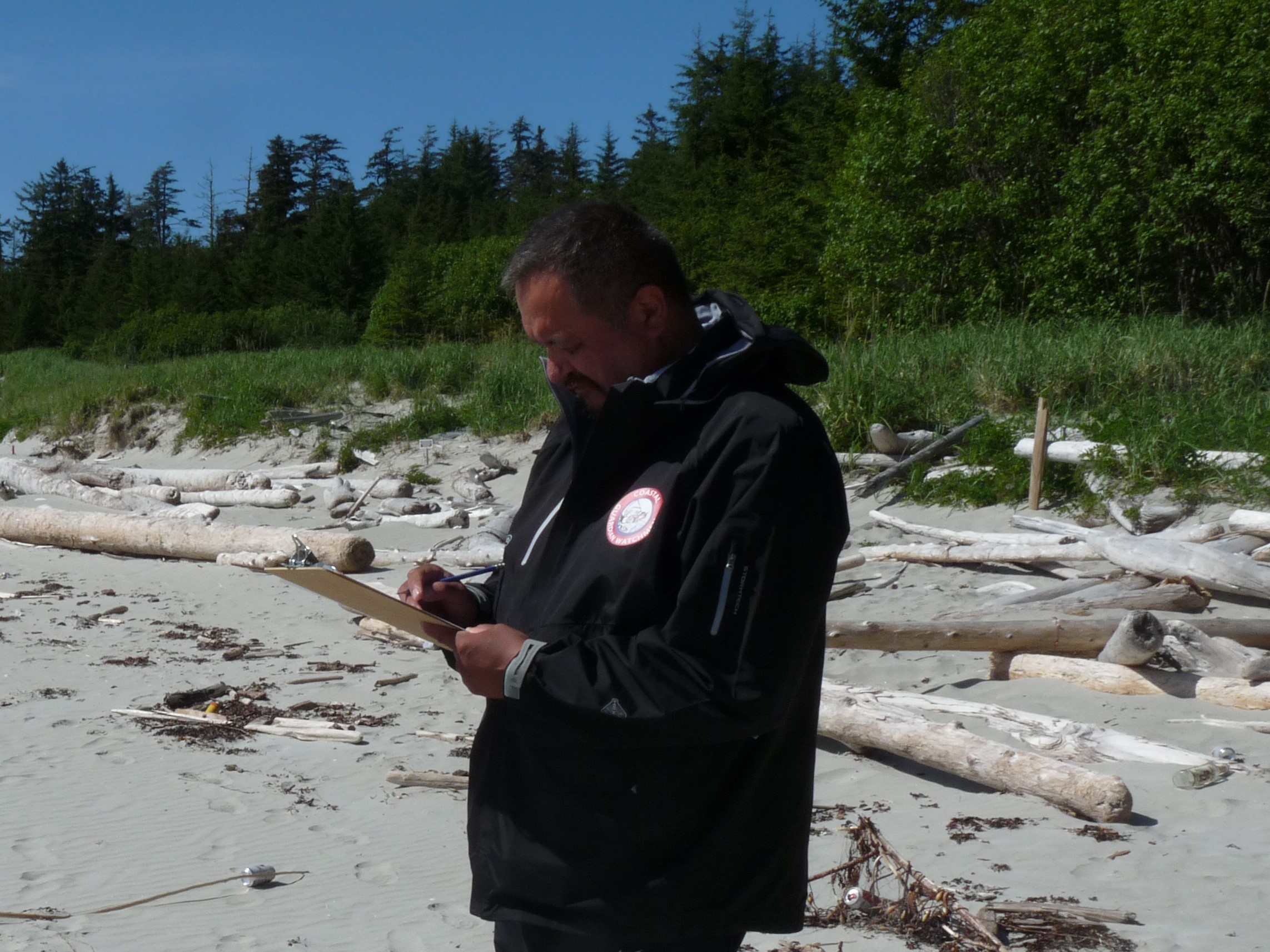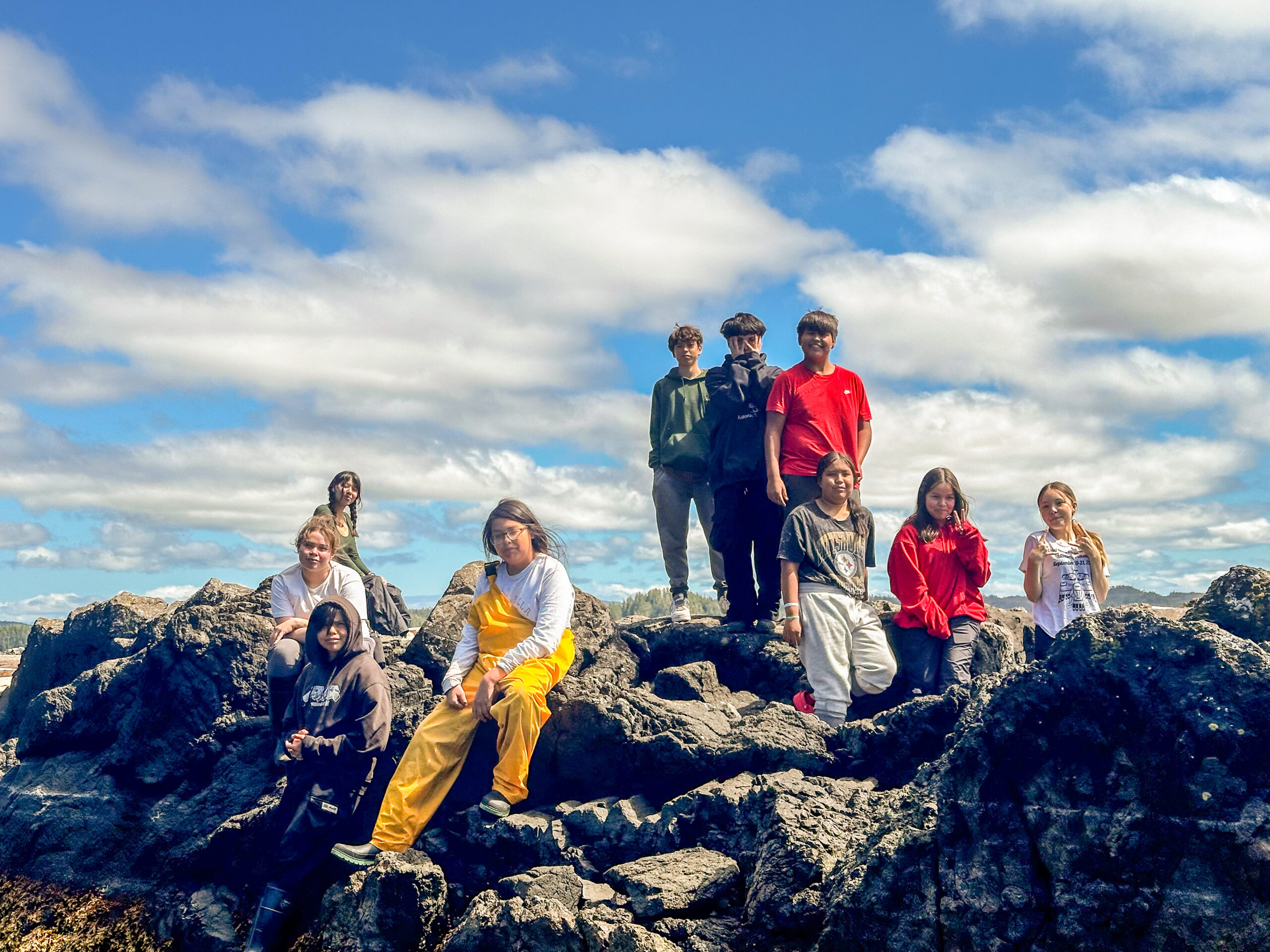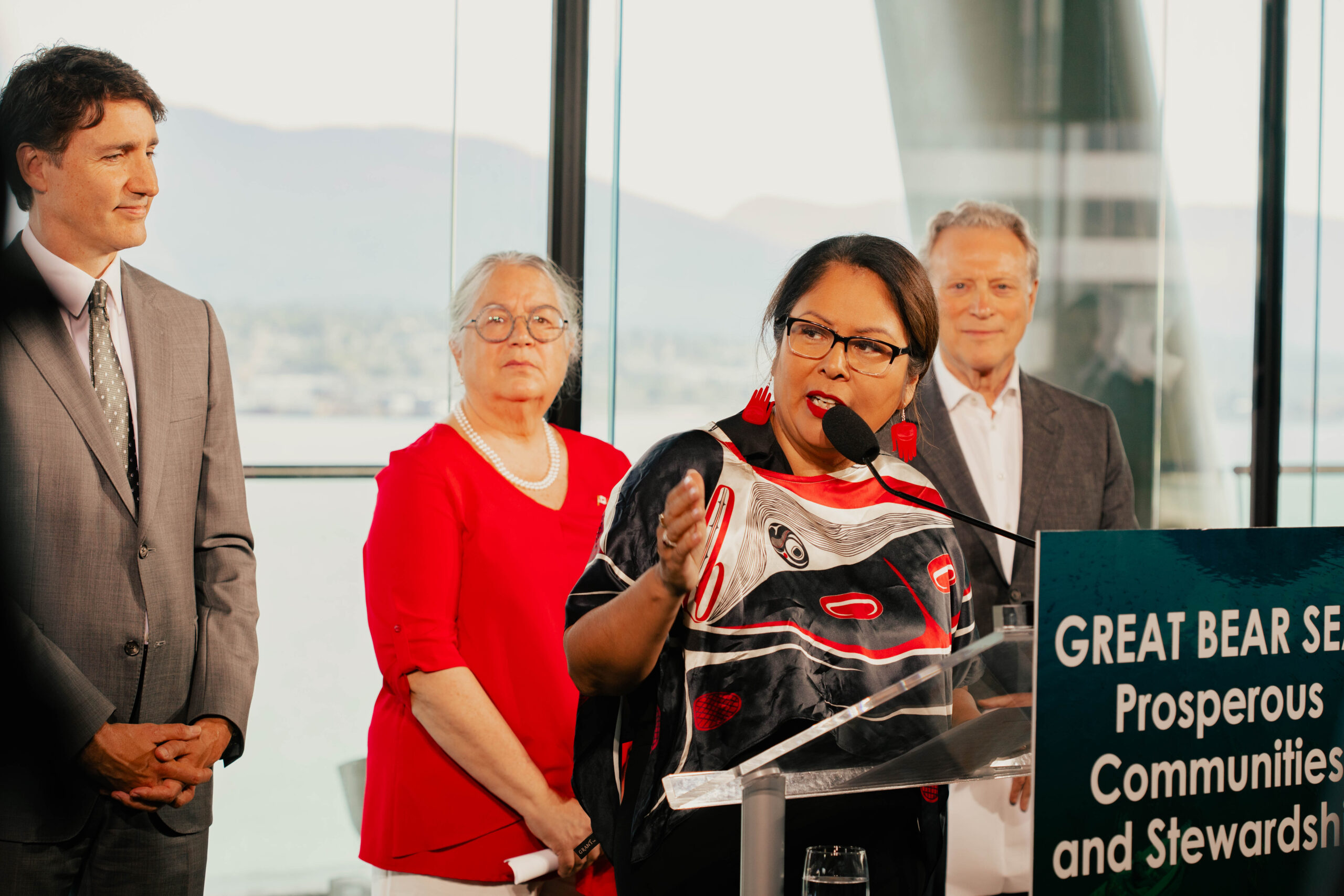As he stewards Heiltsuk Territory, Guardian Watchman Randy Carpenter draws upon a life-time of experience working on the water.
When Randy Carpenter started commercial fishing at 15 years old, he remembers hauling in loads of salmon, herring and other fish with relative ease.
Born in Bella Bella and raised in Richmond, BC, Carpenter moved back home in his early twenties, and continued to fish for a living until he was 30. “That’s when the fishing went down hill, so I had to figure something else out,” says Carpenter, who also worked as a pipe-layer and a tree planter before finally becoming a Coastal Guardian Watchmen in 1999.
Today, he’s happy to be out on the water, helping to sustain local ecosystems, fisheries and culturally significant regions in Heiltsuk lands and waters.
“There isn’t much down time, that’s for sure,” says Carpenter, adding the hardest part of his job is monitoring the manila clam digs. “The season’s over the winter, so it starts getting dark about 4pm,” he explains. “We’re often out at night, sometimes until 2 or 3 in the morning when they’re digging at low tide.”
The manila clam fishery is currently closed in the area, due to lingering effects from the Nathan E. Stewart tugboat, which ran aground October 2016 and spilled more than 100,000 liters of diesel and engine oils into the water right near important clam beds for the Heiltsuk people.
Carpenter, along with several other Guardians and Heiltsuk leaders, were the first on the scene when the tugboat went under, and he still recalls the sickening smell of diesel and other fumes. “It was quite a slick,” he says, “and I had a bad headache from smelling diesel all day long.”
The spill happened near Gale Creek, the site of an ancient Heiltsuk village, and polluted important marine habitats and harvesting sites. “Half the quota for our commercial fishery comes from that area,” says Carpenter, and the manila clam fishery alone employs up to 50 Heiltsuk a year. “So yeah, that’s a huge hit on our community. It’s our backyard basically.”
In addition to his regular tasks, Carpenter and other Guardian Watchmen had to focus on the aftermath of the spill as well, which involved testing for long-term contamination. “We’ve taken all kinds of samples—everything from soil and water to kelp, eelgrass, clam and mussel,” he says. “And that was just from the boats. We also had divers taking samples of everything from sea urchins to sea cucumbers—all the stuff we couldn’t get.”
As for his regular job, Carpenter says there’s still plenty going on. Heiltsuk Guardian Watchmen are working to maintain healthy ecosystems in the face of intensive commercial and recreational fishing, and they’re undertaking research to learn how marine populations are faring after decades of over-fishing. “We patrol closed-off areas and make sure no one’s setting any traps, which gives those species a chance to recover,” he says. “Hopefully, we can shut down a few more important places, so they’re strictly for food harvesting.”
As if he wasn’t busy enough, Carpenter is also coordinating a demonstration fishery this year—a first for the Heiltsuk Nation—that’s for locals only. A joint effort with DFO, the fishery involves 8 to 12 gillnets and one seine boat, and could help to create a new locally based and commercially viable fishery in the area.
With almost 20 years’ experience as a Guardian Watchman, plus previous experience as a fisherman, Carpenter is more than comfortable helping the younger Guardians get up to speed. “They all learn on the job for sure,” he says, “but pretty much everyone who comes into this role is already experienced themselves, with a deep knowledge of our waters.”


